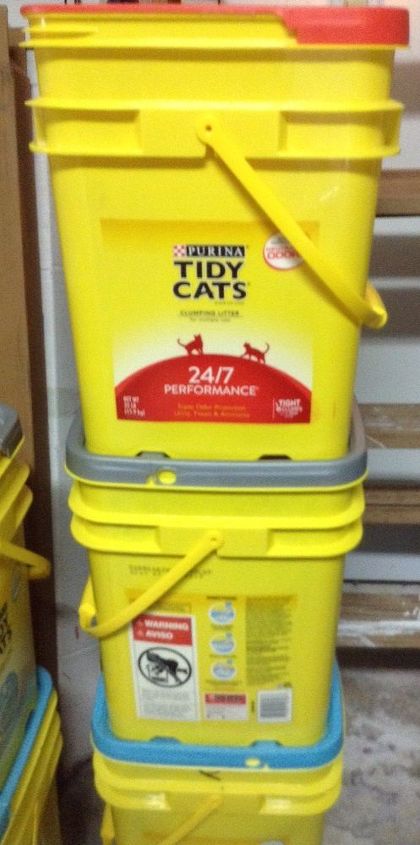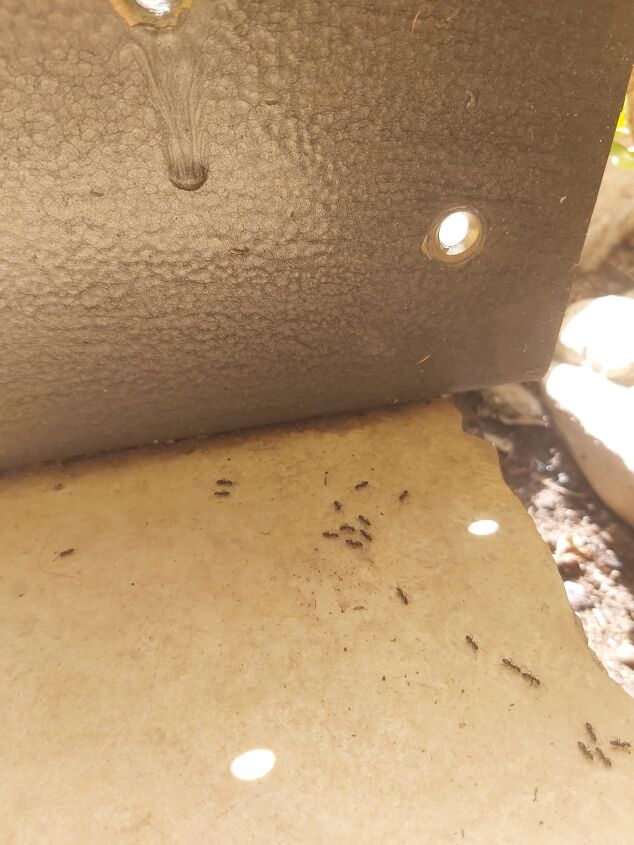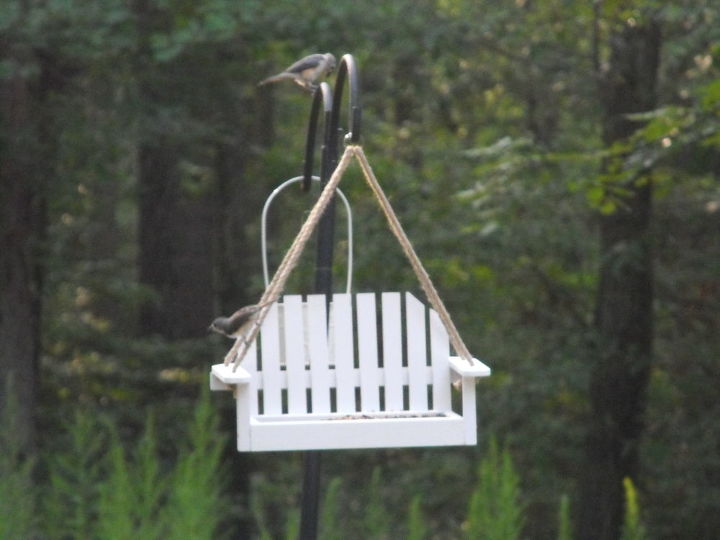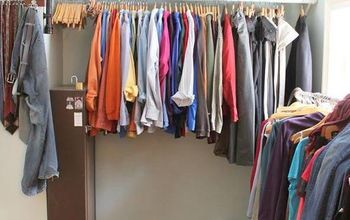Just a question for my own curiosity.

-
The "Green" advantage for return on your money will be different for each of the type of improvement you undertake. Normally the roof, insulation, soffet & siding system with replacement windows will all contribute collectively to reduce your total heating and cooling bills. Just say you dropped $20K in energy repairs and the government gave you the old tax credit of up to $3500 and you cut your electric consumption in half...how many years would the ..say $150 a month savings plus $3500 before you're in the black..ad natural gas water heaters, fireplace inserts and gas dryer and you may get there a little sooner and be doing OK after depreciation in about 10 years out...just in time for middle or old age when you need the breaks the most! Hope this was a little helpful, about the best anyone can do unless you get an actual energy audit and infra red snapshot of your home and compare with costs and anticipated returns...but don't forget to add in typical cost of living increases at a mild 2.4% yearly...That's one reason I keep my spare change in a coffee can! Best to you...JL
 JL Spring & Associates
on Jul 25, 2011
Helpful Reply
JL Spring & Associates
on Jul 25, 2011
Helpful Reply -
-
Windows have one of the worse paybacks there are. What causes the savings when doing windows is not so much as the insulation factor but the windows ability to stop the drafts from leaking seals and install. If you take into effect the cost of installation and what they really save high end windows take up to 50 years to pay you back for the cost involved. This is not to say that you should not consider this as part of the energy solution to save money, but new windows are not really the first thing you should be considering. Also walls, roofs etc. All great at insulation energy saving improvements, but unless the contractor seals the exterior surfaces properly so not to let any air leakage to occur, your best bet is to air seal interior areas and insulate attic, walls, floors, sill area and electrical wall boxes. This will provide you with the best paybacks with the least cost invested. Hot water heater? Some models can save you lots of money, but your right the payback can be quite long to achieve. But with higher efficiency units comes less aggravation because you do not run out of water as fast nor do they use as much energy when they heat the hot water.
 Woodbridge Environmental Tiptophouse.com
on Aug 01, 2011
Helpful Reply
Woodbridge Environmental Tiptophouse.com
on Aug 01, 2011
Helpful Reply -
-
Thanks for the input. I was just curious as to whether other people looked at improving efficiency the same way I did when it comes to repairs on my own home. I won't invest in an energy saving improvement that costs more than it will ever save me, unless forced due to repair issues (such as a new HVAC system). I just think that the "push" to go green will never work until it makes financial sense....not everyone feels guilty enough to pay the cost, despite the return on investment. Putting the efficiency into a new home build is a different thing...the cost increase up front makes much more sense since you are only considering the cost of the upgrade (i.e., cellulous vs fiberglass insulation)...it's more of a retrofit I was curious about, and just wondered if others look at it the same as I do.
 Leslie D
on Aug 01, 2011
Helpful Reply
Leslie D
on Aug 01, 2011
Helpful Reply -
-
You have asked a great question. Having done an extensive remodel a year ago, I looked at a variety of options. As has been suggested, first and foremost, was insulation and leak sealing. Given the walls were opened, these made economic sense (and we found places where the original builder had failed to insulate). I replaced a lot of windows but the 15 year old contractor-cheap grade windows that were present were rotting in place because of the poor quality. Once that decision was made, I did some low cost things like an overhang on the south side. I considered payback time and costs (which is why I dont have solar yet). Given two similarly priced options, I'll go green but a cost difference has to be justified and have a reasonable payback.
 Kevin M. Veler, Law Office of
on Aug 01, 2011
Helpful Reply
Kevin M. Veler, Law Office of
on Aug 01, 2011
Helpful Reply -
-
Aside from the actual "payback" people make choices based on lifestyle or ethics. As an example: Your utility company may offer "electricity" from wind or solar sources that has a 20% added premium. This extra money is used to build the infrastructure for these systems and contribute to their overall production. In your mind you are paying for cleaner energy, but in reality there is no way to separate the electrons flowing through the wire that are generated from a solar or wind source from those that may come form a coal or NG plant. The green minded home owner who wants to take this further installs their own solar or wind system...Here their use is greener and not the "mix" of sources from the utility.
 KMS Woodworks
on Aug 02, 2011
Helpful Reply
KMS Woodworks
on Aug 02, 2011
Helpful Reply -
-
I am in the process of installing new windows in the house that I purchased a little over a year ago that was built in the early 1970's. The windows that I am replacing are single pane, no UV protection, etc. I'm making the change on the windows because of the rebates and savings that I've been able to take advantage of through the window company, the contractor and the local energy company. I may not make my money back right away but I refuse to give over any more of my money than necessary to an energy company that has asked and been given the go ahead for 4 rate increases in just the 5 years that I've lived in Southern Nevada. They institute the rate increases just before the big summer season when the AC is running just as fast as it can to keep up with they triple digits during the day and the 80's overnight. Anything I can do to reduce the amount of my money that they get is worth it to me. Oh, and it will be nice to not have to replace the carpets, wood floors and curtains because of the UV fading.
 Alaine T
on Aug 12, 2011
Helpful Reply
Alaine T
on Aug 12, 2011
Helpful Reply -
-
Leslie, you have to consider the overall context of a claim of 30% improvement for any single item. Realize that their info, if true, is probably based on tests performed in a lab where it is a perfect conditions situation in a very controlled environment. Assuming an equal comparison to YOUR conditions, that is still a thirty percent improvement in the energy loss of the windows only, OT of the entire thermal package of your entire house. So let's say that ten percent of your home's energy loss is thru the windows. A 30% increase in efficiency there would mean approximately a three percent increase in overall energy efficiency for your house, or a reduction in energy use of three percent. Or if you have really good insulation and really bad windows so that your windows now loose 20% of your energy, a 30% improvement at the windows gives you approx 6% less energy use.
 Nichter's Home Services Corp
on Aug 12, 2011
Helpful Reply
Nichter's Home Services Corp
on Aug 12, 2011
Helpful Reply -
-
Alaine...widows do contribute to heat gain but this may be small compared to heat gains do to air leaks and poor attic insulation. Have you inspected these other "trouble" areas?....in the 70's when homes were built insulation was more expensive than the energy used to heat and cool...so it was skimped on.
 KMS Woodworks
on Aug 12, 2011
Helpful Reply
KMS Woodworks
on Aug 12, 2011
Helpful Reply -
-
KMS makes a good point Alaine, before investing that much in windows, you should have a blower door test done to see where your holes are. The 3M company has a variety of window films available to apply to the glass surface that CAN be more effective than low E coatings from the factory, depending on which you choose
 Nichter's Home Services Corp
on Aug 13, 2011
Helpful Reply
Nichter's Home Services Corp
on Aug 13, 2011
Helpful Reply -
-
Aside from the % return value, other things can help to recoup your initial investment quicker such as various federal/state/local tax incentives. Sometimes these can be quite large and equate to numerous years worth of that 30% energy savings value. Also, for some "green" items, the government or other organizations will contribute to the initial cost of buying and/or installing the items.
 Dan's of Central Florida, Inc.
on Aug 13, 2011
Helpful Reply
Dan's of Central Florida, Inc.
on Aug 13, 2011
Helpful Reply -
-
Yes, I've done the upgrades to the insulation (blown in the walls) and put new insulation in the attic when the roof and AC and ducting were replaced earlier this year due to some damage that was covered by insurance. The windows are the weakest link at this point. When the walls are cool and the windows are warm enough to be uncomfortable to put your hand on in the Las Vegas summer... they have to go.
 Alaine T
on Aug 13, 2011
Helpful Reply
Alaine T
on Aug 13, 2011
Helpful Reply -
-
alaine...looks like your heading down the right road
 KMS Woodworks
on Aug 14, 2011
Helpful Reply
KMS Woodworks
on Aug 14, 2011
Helpful Reply -
Related Discussions
Creative uses for empty cat litter buckets, anyone?
Does anyone have any ideas of things to do with empty cat litter plastic buckets? I did take a foam square and covered the bucket and foam with fabric to make a quick... See more
How do you use washi tape?
Looking for ideas on how to use washi tape for DIY projects and crafts.Do you use it on notebooks, gift wrap, and journal pages?How about decor pieces and organizing ... See more
Is washi tape recyclable?
I'm moving to a new place and taking down my renter-friendly washi tape decor when I thought... wait, isn't this just paper? Can I chuck the washi paper in the recycl... See more
Can you write on washi tape?
I have some gorgeous translucent washi tape and I want to use it to label items. Has anybody written on washi tape before? If so, what type of pen/ink works best to s... See more
How effective are bay leaves for ants?
I'm dealing with a terrible ant infestation, and I heard that bay leaves can be a great way to keep them away. Do you know if that's true? If it is, how can I use bay... See more
Does anyone have any good suggestions on how to keep squirrels out of my bird feeders?
I have tried the crushed red pepper in the bird seed, and have tried putting vaseline on the pole that holds the feeders....any other suggestions? I will at times hav... See more
How to clean a mirror without streaks?
Every time I clean my mirrors, they end up having tons of streaks and almost look worse than before I started. What could I use to clean them that won't leave streaks... See more



